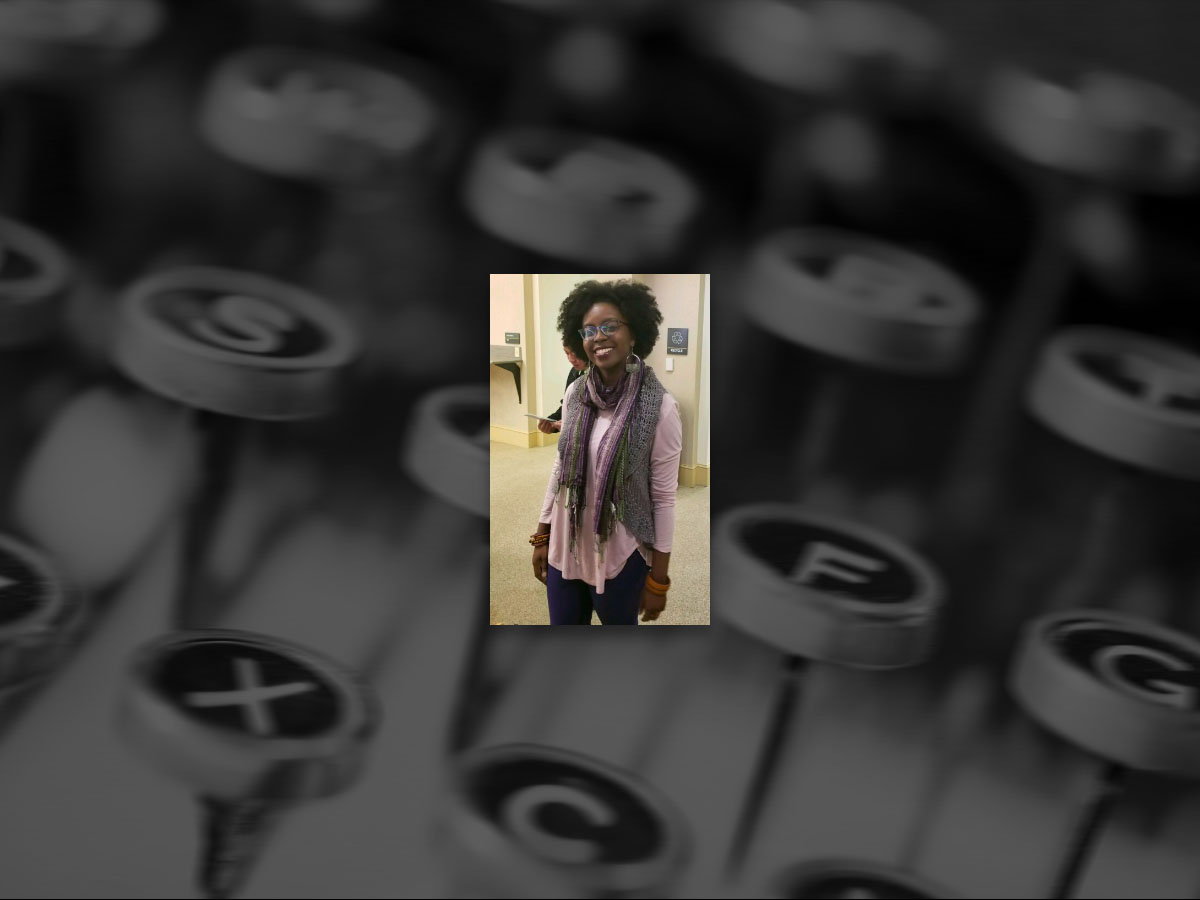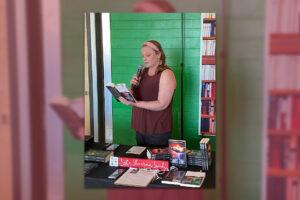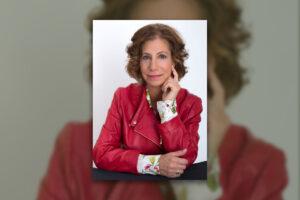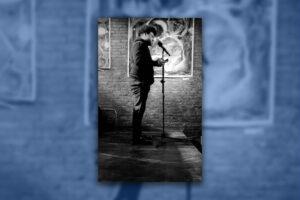By Jesse Siedel
Friday, March 23, I had the privilege of meeting Spoken Word Artist D. Colin and even managed to sit her down for a short interview. The interview in its entirety is transcripted below for ones reading pleasure.
JESSE: Recording, there we go! Okay, this is going to be relatively quick and this is going to be more, um, informal than anything because I’m still new at this.
D. COLIN: Okay.
JESSE: First off, I’m sure this is a question you’ve heard many times but what was it that made you go into poetry and writing and all that?
D. COLIN: I was introduced to poetry in school. I wrote my first poem in school, when I was eleven, and it just kinda stuck? [Chuckles] Originally it was something to help me express myself, then it turned into something I realized could help other people, especially when I perform.
JESSE: Right, interesting, next question…um, are there any books or authors you would recommend, poetry or in literature in general?
D. COLIN: Ooh, there’s so many, um, I love June Jordan, she’s amazing she also writes essays and other things. Also, Audrey Lord who again is more than a poet who has written a bunch of different things, Nicki Giovanni, Saul Williams, I really like Emily Dickinson (J: Right) very short poems that capture a lot even in their short length. Yeah that’s my short list.
Jesse: Would those also be the ones that inspired you and influenced your writing style?
D. Colin: Yes. I read a lot William Wordsworth too. I listen to a lot of spoken word artists because I’m a spoken word artist, so that list is long.
JESSE: Is there any sort of advice you’d like to give to future Spoken Word Artists or Poets or what have you?
D. COLIN: Advice I’ve given is…while you’re performing, perform the same whether its five or five thousand. That is advice I was given by another poet and its really helped me in really focusing on the poem itself and the craft and not just on the size of the audience.
JESSE: So just ignore the crowd no matter what?
D. COLIN: Yeah and always stay to true to why you wrote the piece in the first place a lot of spoken word artists go into competitive poetry and they go into slam and sometimes when theyre competing sometimes they lose sight of why they wrote the poem and the meaning or how it can affect the audience, and they’re more focused on the points rather than that. So it’s always important to stay to why I wrote it, because you can stay in touch on how you perform the poem every time. So I find that to be important, especially when I find my self performing the same piece, over and over again.
JESSE: Right, trying to go into that sort of groove?
D. COLIN: Yeah and you gotta remember why you wrote it. Those are my two biggest pieces of advice. Also write. Write all the time. You can’t really call yourself a writer without writing. [Laughs] Or trying to perfect your craft and improve what you’re doing already. So writing continually is a big deal.
JESSE: How do you usually deal with moments where you can’t really write, when those creative juices just won’t flow?
D. COLIN: I find if you journal every day or if you just free-write. Some ideas will come to you that you hadn’t thought about before, just because you’re not putting the pressure on creating something um, so whenever I feel like I’m stuck, I always just go back to stuff that I wrote when I wasn’t thinking about writing. And usually there are ideas in there, also if I am already free writing there may be something that comes to mind I hadn’t thought about. I don’t think there’s any such thing as Writer’s Block, we just have to find new ways to dig for what it is we’re looking for..
JESSE: Have you personally ever tried branching out, not to put down spoken word, but have you ever tried branching out to other realms of literature like narrative or plays?
D. COLIN: I’m actually writing a play right now.
JESSE: Really? What is it about?
D. COLIN: It’s a spin on Beauty and the Beast for a youth production that’s happening this summer. I’ve also written monologues, and I’ve done reenactments of Sojourner Truth and Harriet Tubman, so I’ve had to write the script for that. And in college I did some non-fiction, creative non-fiction work. I haven’t explored it much more than that butits something I might return to, and personal essays, of course.
JESSE: Alright, that is basically it, it was a pleasure speaking with you, sorry it was so short.
D. COLIN: Oh it’s not a problem at all.
JESSE: Do you have any questions for me about anything, such as the Com.PEN.dium or the University at large?
D. COLIN: What exactly is it?
JESSE: Well, The Writer’s Com.PEN.Dium basically wants to link all the- basically everything up from the Writer’s Institute down to the smallest open-mic night at your local coffee house and they have this Compendium, as it were, for people who are curious to meet other writers or just be exposed to a more literary world. It just started a few weeks ago.
D. COLIN: Oh, so its recent, that’s very interesting.





